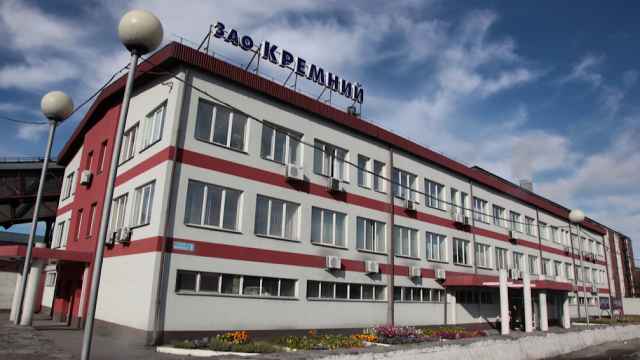Wage arrears among Russian companies surged in early 2025, reflecting growing financial pressures on businesses across several key industries, according to a report from the General Confederation of Trade Unions obtained by the pro-Kremlin daily Izvestia.
While official government statistics indicate that wage arrears increased from 500 million rubles ($6 million) in January to 1.5 billion rubles ($18 million) by March, the trade union report estimates the actual total to be significantly higher — reaching 2.4 billion rubles ($30 million) in the first quarter of the year.
The largest arrears were recorded at DSK, a road construction company in the Tver region, which owed 608 million rubles ($8 million) to 3,657 employees as of late March.
Other notable cases included Shakhta Inskaya, an industrial equipment supplier in the Kemerovo region that failed to pay 65 million rubles ($800,000) to its workforce on time.
Rassvet, a food services company in the Tula region, owed 36 million rubles ($450,000) to its staff.
“The greatest volume of wage arrears was recorded in construction, manufacturing and water supply and waste management,” Dmitry Pishchalnikov, vice president of Opora Russia, an association representing small and medium-sized businesses, told Izvestia.
He noted that companies in the Ural Mountains and Siberian regions are experiencing particularly acute difficulties.
“These are industrial areas with many enterprises reliant on borrowed funds and government contracts, making them especially vulnerable under the current tight financial conditions,” Pishchalnikov explained, referring to the Central Bank’s 20% key interest rate.
Pishchalnikov also cited data from the Federal Labour Inspectorate showing more than 18,000 citizen complaints about wage delays in 2024, up 37% from 2023.
“Most of the grievances come from employees at small and medium-sized enterprises, including those operating under government contracts or focused on local markets,” Pishchalnikov added.
Independent economist Andrei Barkhota described the situation as an “existential challenge” for many companies, warning that the high key interest rate could inflate monthly debt payments by 30 to 70%.
“Faced with this pressure, companies must choose between delaying wages or defaulting on loans. Since defaulting risks cutting off financing and damaging credit ratings, many are increasingly forced to delay wage payments,” he said.
The Labor and Employment Service confirmed it had received monitoring data from the Confederation of Trade Unions listing organizations with combined wage arrears totaling approximately 2.4 billion rubles ($30 million).
The agency noted that its figures were corroborated by the State Labor Inspectorate and an analysis of primary company documents.
A Message from The Moscow Times:
Dear readers,
We are facing unprecedented challenges. Russia's Prosecutor General's Office has designated The Moscow Times as an "undesirable" organization, criminalizing our work and putting our staff at risk of prosecution. This follows our earlier unjust labeling as a "foreign agent."
These actions are direct attempts to silence independent journalism in Russia. The authorities claim our work "discredits the decisions of the Russian leadership." We see things differently: we strive to provide accurate, unbiased reporting on Russia.
We, the journalists of The Moscow Times, refuse to be silenced. But to continue our work, we need your help.
Your support, no matter how small, makes a world of difference. If you can, please support us monthly starting from just $2. It's quick to set up, and every contribution makes a significant impact.
By supporting The Moscow Times, you're defending open, independent journalism in the face of repression. Thank you for standing with us.
Remind me later.






